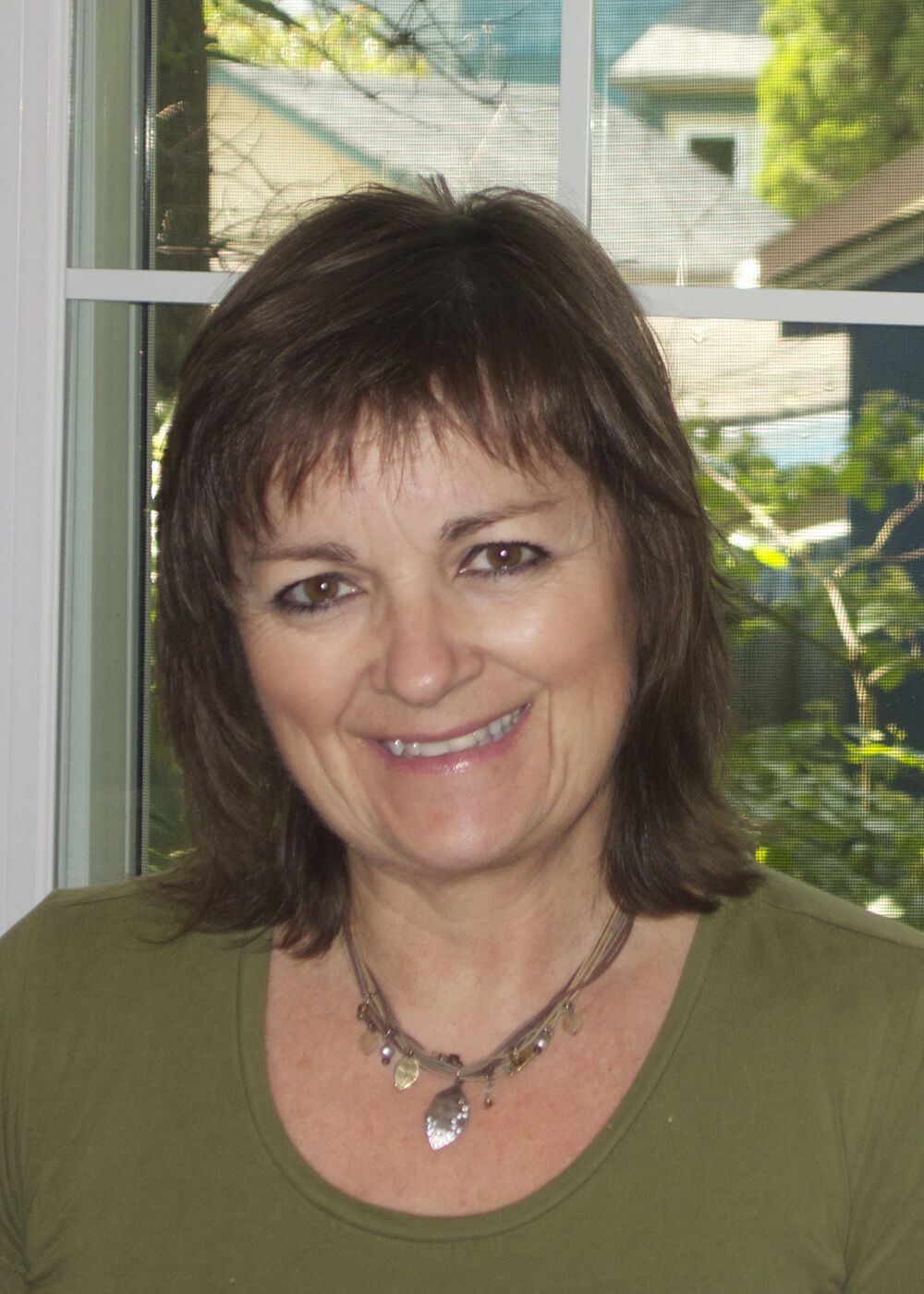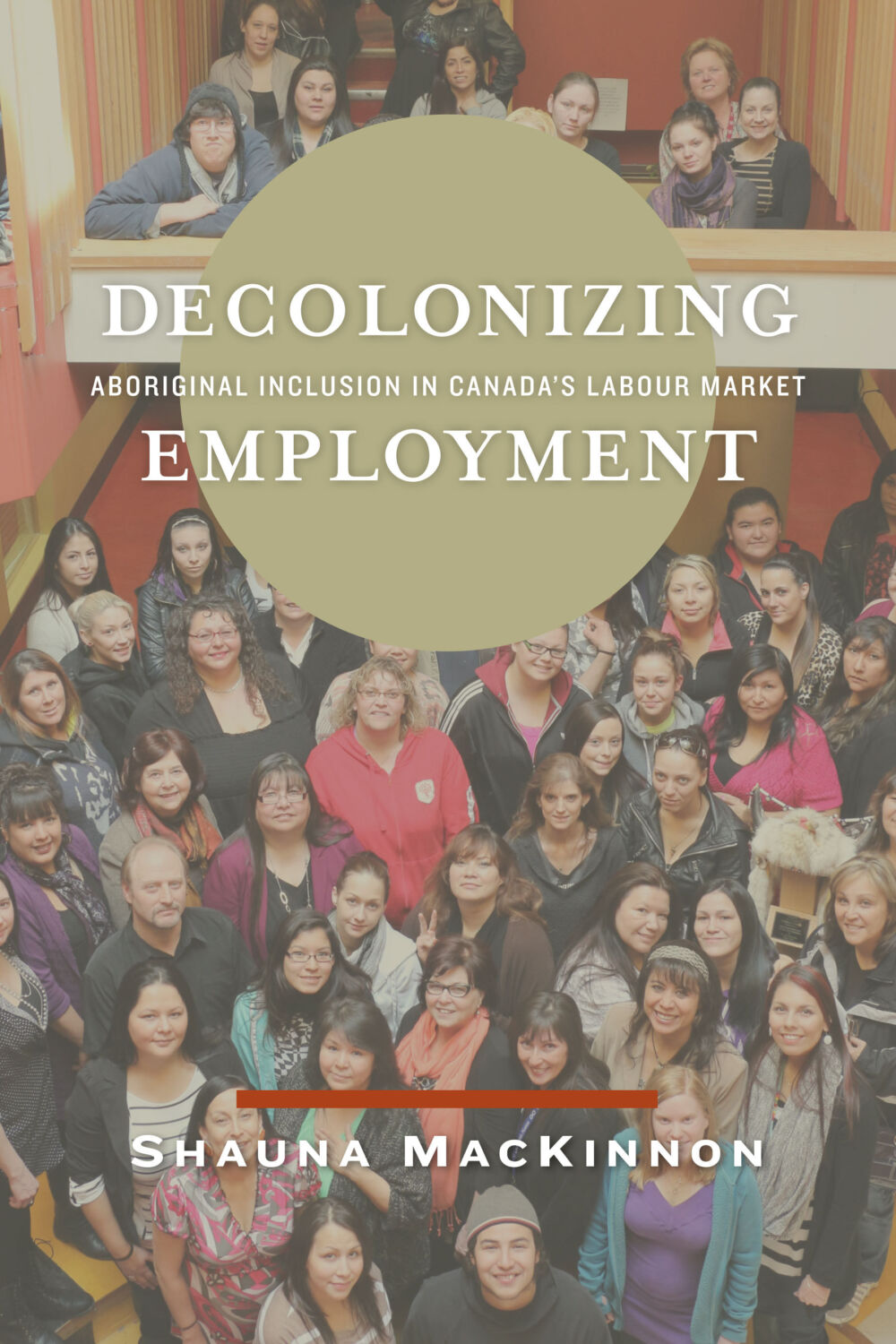Why did you write Decolonizing Employment ?
This is a long story. The focus of this book evolved from a broader interest in issues related to poverty from personal experience as well as my work as a social worker, educator and social policy/anti-poverty activist. Before pursuing my PhD studies, where this became my topic of research, I worked in various capacities with people living on the margins, struggling to find a way to escape poverty and build better lives for themselves and their families. I also had personal experience with this. Another long story, but my mother was a single parent with four children. She had a grade 10 education. She worked in several low-wage jobs. I graduated from high school but didn’t attend university until I was 28 years old.

Post secondary education was a foreign concept to me—I was the first in my family to attend and I knew nobody with a university education. But as difficult as it was for me, I could see that the challenge was far greater for some of my peers; adult learners like me but with far more complicated lives, few supports, and histories that had left lasting scars.
After completing a Bachelors followed by a Masters degree in Social Work, I did some teaching with the UM Social Work Program in Thompson, at the UM main campus Social Work program and at the ACCESS program in the inner city of Winnipeg. I also worked with the UM Engineering ACCESS program as a student counselor. This experience led me to further understand how difficult the journey was for the Aboriginal adult learners who I worked with. But I also saw the powerful impact that it had.

However, in the 1990s I also saw that policies were changing—moving away from supporting people living in poverty to attend university. Increasingly the focus was on short-term training to meet labour market needs. Interest and aptitude seemed to not matter. It was increasingly clear to me that post-secondary education in our society was more of a privilege than a right.
To make a very long story short, returning to school at age 28 changed my life completely. My family could not provide me with financial support, but they provided me with encouragement and other supports that many adult learners do not have. But most to my advantage was the privilege that comes from being ‘white.’ From not having to deal with racism and the intergenerational effects of colonial policies that I could see to have been so damaging to many of the students I taught and the individuals I worked with as social worker.
My interest in this topic led me to consider pursuing a PhD. I had a lot of encouragement from the many academics that I had come to know through my activism. I should note that had it not been for that encouragement I would not now be a university professor. I am the only person in my family to have attended university so the idea of a PhD was not something I had ever imagined.
Did you encounter any major obstacles when conducting your research?
Sure. The main obstacles are finding people to interview. I also would have liked to have been able to travel to some northern communities to interview individuals who participated in Manitoba Hydro-related training.
What was the most surprising discovery in your research for the book?
I actually talk about this in the book. I began my research process with what I now see as a narrow focus on social and economic outcomes. After interviewing students, and in particular those who attended Urban Circle Training Centre and the Inner City Social Work program, I realized the importance of cultural identity and healing. I also learned that in spite of the limitations resulting from insufficient funding and the focus on short-term training, organizations are finding ways to include the cultural identity programming needed and this is helping many individuals on a journey focused on healing, which is the first step to the more narrowly defined social and economic success that we tend to focus on.
I was surprised by the resiliency. Most of the individuals that I spoke with described complex lives and very difficult childhoods. In spite of this, they continue to have hope.
What do you hope people will learn from reading Decolonizing Employment?
I hope that people will learn that there are no quick fixes. That the current approach to training people quickly for jobs that the market provides perpetuates colonial assimilationist aims.
People who have been excluded from the labour market for generations, but more importantly made to feel that their indigeneity makes them inferior, must be provided with opportunities to reclaim their identities and cultures as part of a journey of healing that is, as students have told me, the most important step toward ‘success.’
Posted by Shauna MacKinnon
October 5, 2015
Categorized as Author Posts
Tagged aboriginal, activism, culture, education, healing, history, identity, indigenous, labour, manitoba, northern, policy, social work, training, winnipeg, work
The Indigenous Vote A Fascinating Journey
